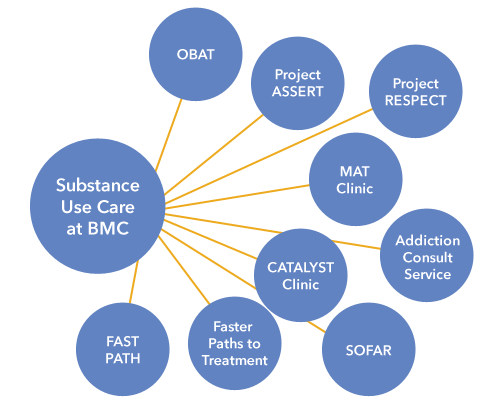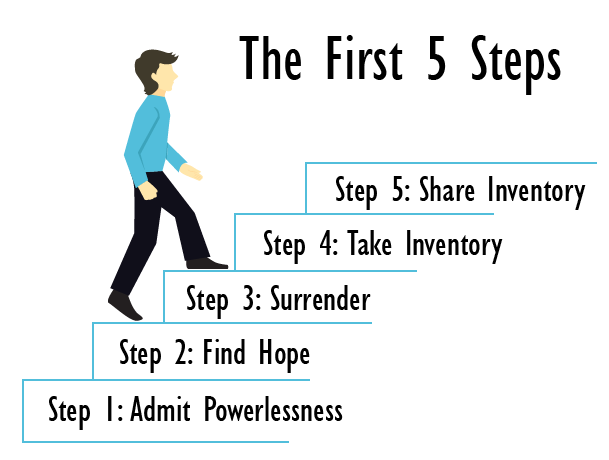Although there's no remedy for drug dependency, treatment options explained listed below can assist you conquer a dependency and remain drug-free. Your treatment depends on the substance abuse and any associated medical or psychological health disorders you might have. Long-lasting follow-up is necessary to prevent relapse. Treatment programs generally use: Person, group or family treatment sessions Article source A focus on comprehending the nature of addiction, becoming drug-free and avoiding relapse Levels of care and settings that differ depending on your needs, such as outpatient, property and inpatient programs The objective of detoxification, also called "detox" or withdrawal treatment, is to enable you to stop taking the addictive drug as rapidly and securely as possible.
Others may require admission to a health center or a domestic treatment center. Withdrawal from various classifications of drugs such as depressants, stimulants or opioids produces various negative effects and needs various techniques. Detox might involve slowly Click here for more lowering the dosage of the drug or briefly replacing other compounds, such as methadone, buprenorphine, or a combination of buprenorphine and naloxone.
Naloxone momentarily reverses the effects of opioid drugs. While naloxone has actually been on the market for many years, delivery systems such as Narcan (a naloxone nasal spray) and Evzio (a naloxone injection gadget) are now available, though they can be very pricey. Evzio is a small injection gadget that offers voice instructions to direct the user and instantly place the needle into the thigh to deliver the naloxone injection.
As part of a drug treatment program, behavior modification a type of psychiatric therapy can be done by a psychologist or psychiatrist, or you may receive counseling from a licensed alcohol and drug counselor. Therapy and counseling might be made with a private, a family or a group. The therapist or therapist can: Help you develop ways to cope with your drug yearnings Suggest strategies to prevent drugs and avoid relapse Deal tips on how to deal with a relapse if it happens Talk about concerns concerning your job, legal issues, and relationships with friends and family Include member of the family to help them establish better communication skills and be encouraging Address other mental health conditions Numerous, though not all, self-help support system use the 12-step design very first developed by Alcoholics Anonymous.
The self-help support system message is that addiction is a persistent condition with a risk of regression. Self-help support groups can decrease the sense of pity and seclusion that can result in relapse. Your therapist or licensed counselor can assist you find a self-help support system. You may likewise discover support groups in your community or on the internet.
Not known Details About Which Of The Following Is The Most Common Pharmacological Treatment For Addiction?
Learning new coping abilities and knowing where to find aid are vital. Taking these actions can help: Drug addiction is connected to a variety of issues that might be assisted with treatment or counseling, including other underlying psychological health concerns or marital relationship or household problems. Seeing a psychiatrist, psychologist or licensed therapist might assist you regain your comfort and mend your relationships.
Look for immediate treatment from a certified psychological health professional if you have any indications or symptoms of mental illness. Support system, such as Narcotics Anonymous or Twelve step programs, can be really effective in handling dependency. Empathy, understanding and shared experiences can assist you break your addiction and stay drug-free.

You can begin by discussing your compound usage with your main doctor, or Click here! ask for a referral to a professional in drug addiction, such as a licensed alcohol and drug counselor, or a psychiatrist or psychologist. Take a relative or buddy along (what is the first step of drug addiction treatment). Here's some info to assist you prepare for your consultation.
To get an accurate idea of which treatment may assist, be truthful with your doctor or other mental health expert. that you're taking, and the dosages. Tell the medical professional about any legal or controlled substances you're using. your medical professional or psychological health professional. Some questions to ask your doctor may consist of: What's the finest technique to my drug addiction? Should I see a psychiatrist or other psychological health expert? Will I need to go to the hospital or hang out as an inpatient or outpatient at a healing clinic? What are the alternatives to the main approach that you're recommending? Exist any brochures or other printed material that I can have? What sites do you suggest? Do not hesitate to ask other questions during your appointment.

Be prepared to answer them to reserve time to review any points you desire to concentrate on. Your medical professional may ask: What drugs do you utilize? When did your drug usage initially start? How often do you use drugs? When you take a drug, just how much do you utilize? Do you ever feel that you might have an issue with drugs? Have you attempted to stop by yourself? What happened when you did? If you tried to give up, did you have withdrawal signs? Have any household members slammed your drug use? Are you ready to get the treatment required for your drug addiction? Oct.
The 6-Minute Rule for What Is The Most Efficatious Treatment For Opioids Addiction
Alcohol And Drugs Can Hijack Your BrainPeople with addiction lose control over their actions. They crave and seek out drugs, alcohol, or other compounds no matter what the costeven at the danger of harmful relationships, harming family, or losing jobs. What is it about addiction that makes people act in such devastating ways? And why is it so hard to give up? NIH-funded researchers are working to read more about the biology of dependency.
However even for those who've effectively stop, there's constantly a danger of the dependency returning, which is called regression. The biological basis of addiction assists to explain why individuals need a lot more than good intentions or willpower to break their dependencies. "A common misperception is that dependency is an option or moral issue, and all you have to do is stop (how could the family genogram be applied to the treatment of a family with addiction issues).
George Koob, director of NIH's National Institute on Alcoholic Abuse and Alcohol Addiction. "The brain in fact changes with dependency, and it takes an excellent offer of work to get it back to its typical state. The more drugs or alcohol you have actually taken, the more disruptive it is to the brain." Researchers have actually found that much of dependency's power depends on its capability to hijack and even ruin key brain regions that are suggested to help us endure.
It does this by switching on brain circuits that make you feel terrific, which then motivates you to repeat those behaviors. On the other hand, when you remain in risk, a healthy brain pushes your body to respond rapidly with worry or alarm, so you'll get out of damage's way. If you're tempted by something questionablelike eating ice cream prior to supper or buying things you can't affordthe front regions of your brain can assist you decide if the repercussions are worth the actions.
Drugs or alcohol can hijack the pleasure/reward circuits in your brain and hook you into wanting more and more. Addiction can also send your psychological danger-sensing circuits into overdrive, making you feel anxious and stressed out when you're not utilizing the drugs or alcohol. At this phase, individuals frequently utilize drugs or alcohol to avoid feeling bad instead of for their satisfying impacts.